―
Creating a New Global Order
―
○ “Western countries including the United States, the United Kingdom, and Europe will discuss strengthening sanctions against Russia and maintaining a united front against President Putin at the G7 summit in Germany to be held until July 28 and the NATO summit in Madrid, Spain held July 29~30.”
(Money Today, June 27, 2002)
https://news.mt.co.kr/mtview.php?no=2022062710242181421
○ “China is pushing for BRICS Plus to expand its power around developing countries as the United Sates intensifies pressure through the Indo-Pacific Economic Framework (IPEF), following the US, UK, and Australian security alliance AUKUS and the US, Japan, Australia and India security dialogue Quad.”
(Yeonhap News, June 24, 2022)
https://www.yna.co.kr/view/AKR20220624071400083?input=1195m
The last week of June was a very busy week for world leaders, as shown in these articles from the international news section. Countries are making movements to unite either around the US and EU, or around China and Russia. Are we moving toward the end of globalization, and will we see the rise of the Cold War era that ended 30 years ago?
In going through the COVID-19 pandemic and the Russo-Ukrainian War, the world is now witnessing the gradual collapse of a global system that used to work together as one big team thanks to multilateralism and the division of labor.
The prospect of a Russo-Ukrainian War escalating into a long-term war is deeply troubling for countries around the world because it is not just a "regional conflict" but a new challenge to the U.S.-led international order.
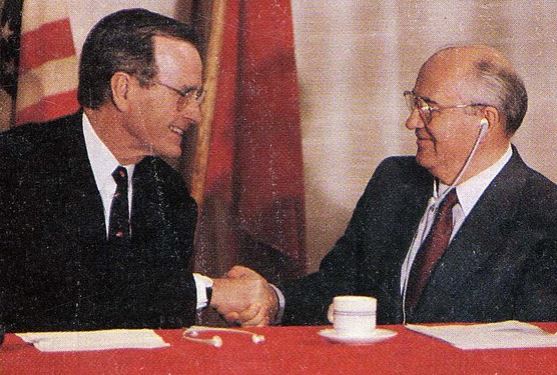
(U.S. President Bush on left, General Secretary of the Communist party of the Soviet Union Gorbachev on right, 1989. Source: Joongang Daily)
After the U.S. and Soviet leaders declared the end of the Cold War in 1989, the world has lived in a U.S.-led liberal international order for the past 30 years. But the trigger that Putin fired at Ukraine caused a major crack in this order.
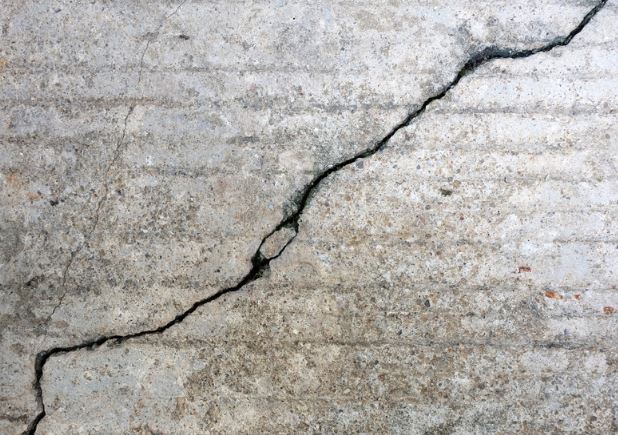
Shortly after Putin fired his gun, the world is being divided into two camps: the United States, which seeks to maintain the status quo order and its allies, versus Russia, which challenges it, and China, which has regained its former hegemony status in the 21st century. The confrontation of forces is in full swing.
This article will discuss the recent international situation which can described with the key terms of deglobalization, formation of regional blocs, and the New Cold War.
―
Economy and Security
Countries Siding with the U.S.
―
Recently, U.S. President Joe Biden has made extensive strides toward military and economic diplomacy from South America to Europe and the Asia-Pacific.
The analysis suggests that the United States, which strongly feels the need for a new alliance strategy to counter China and Russia, has embraced both allies and non-allies of the major bloc, and is set out to shape a new version of the international order.
○ G7(Group of Seven)
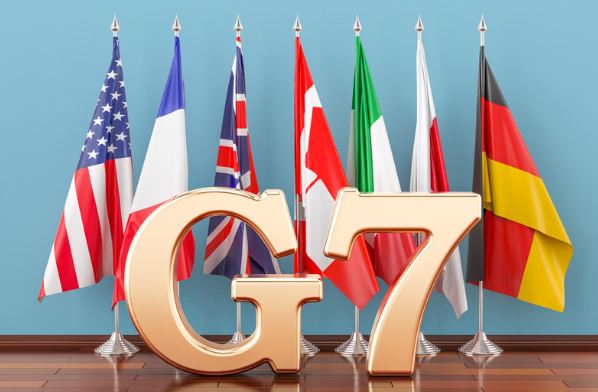
During the G7 summit held in Germany on June 26, it was announced that $600 billion will be invested in the development of infrastructure in developing countries against China's one belt road (Silk Road by land and sea), along with sanctions against Russia including the suspension on importing gold from Russian.
The G7 is an annual meeting between the leaders of seven countries, the United States, the United Kingdom, Germany, France, Canada, Italy and Japan, as well as representatives of the European Union (EU) to discuss international politics, economics and more. It started in the 1970s to establish a new economic order centered on liberal states when the G4 (the United States, Germany, the United Kingdom, and France) experienced a global economic crisis, including the oil wave.
Japan, Italy and Canada then joined later to form the G7, and in 1998 Russia joined to form the G8. However, in 2014, when Russia forcibly annexed Ukraine's Crimea, it was ousted and hence it became the G7 again.
Recently, however, there have been proposals from the United States, the United Kingdom, France, and others to expand the G7 to include South Korea, Australia, India, and Spain as members. The intention is to form a larger US-centric force.
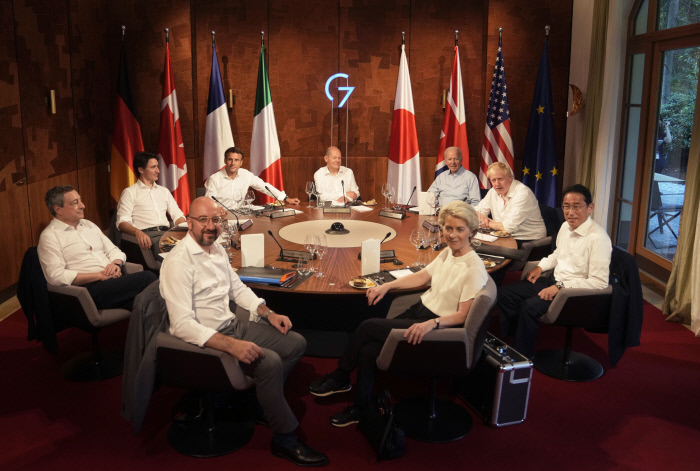
(Source: Yeonahp News)
Of course, Russia reveals an uncomfortable planting to this move. Russia's Speaker of the House of Representatives, Volodin, said an entirely new G8 could be born, consisting of China, India, Indonesia, Brazil, Mexico, Iran and Turkey, who do not join the Russian sanctions or show unilateral support for the United States.
Since then, the world has been on its way to becoming more polarized.
○ NATO (North Atlantic Treaty Organization)
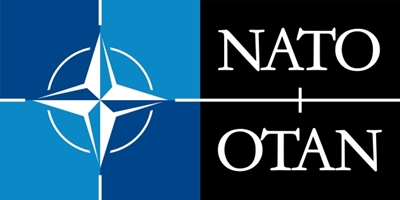
NATO is the most high-profile international military alliance since Russia's invasion of Ukraine. In the United States, the United Kingdom, Germany, etc., it is called 'NATO' and in countries such as France, Spain and Italy, it is called 'Organisation du Traité de l'Atlantique Nord' or ‘OTAN.’
NATO was created in 1949 to counter the former Soviet Union stationed in Eastern Europe, mainly in Europe and North American countries, and now 30 countries have joined the group. It has existed since the end of the Cold War in 1991.
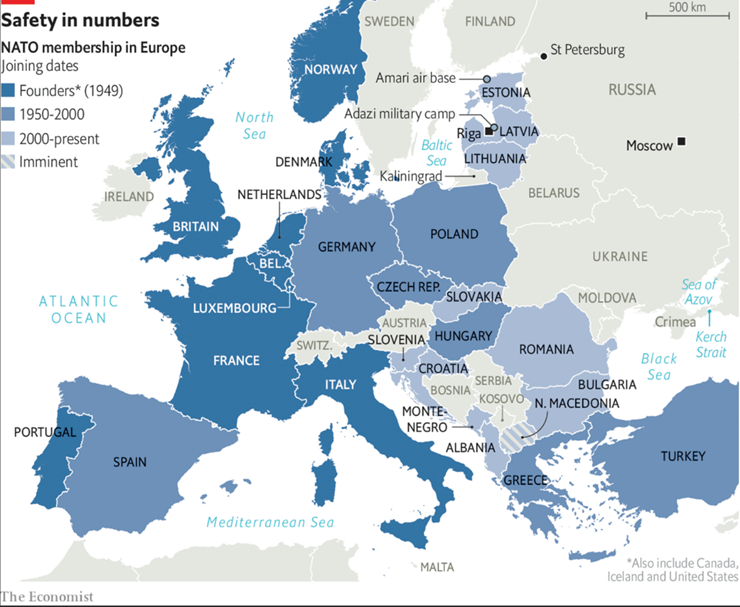
(Source: The Economist)
According to the NATO Charter, an armed attack on any one of its member states is considered an attack on all NATO member states. This is the greatest strength of the military alliance, that NATO will help its member states under attack.
Feeling uneasy after Russia's invasion of Ukraine, Sweden and Finland broke the neutral line they had held for the past 70 years and applied to join NATO.
In response, NATO issued a statement that "the two countries will be safer, NATO will be stronger, and Europe and the Atlantic Ocean will be more secure" as they welcomed Finland and Sweden to join.
After the extreme tension caused by the Russo-Ukrainian War, NATO made plans to increase its Rapid Response Force from 40,000, to 300,000.
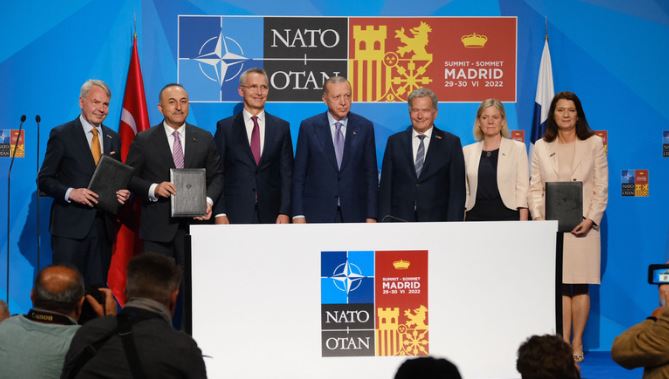
https://www.nato.int/cps/en/natohq/news_197251.htm
Russia, which invaded Ukraine to stop NATO's advance, is facing headwinds of NATO's expansion.
Furthermore, at the NATO Summit, the leaders of South Korea, Japan, Australia and New Zealand were invited to participate as "Asia-Pacific Partner Countries," showing the expansion of NATO's influence. There is one other country that feels as uneasy as Russia about the NATO expansion, and it’s China.
China has expressed its uncomfortable planting that "the Asia-Pacific region is not in the geographical category of the North Atlantic" and that it "resolutely opposes any words and deeds that attract military groups to incite division and opposition."

In addition, at the NATO summit, a new "Strategic Concept" was adopted, describing Russia as a "serious and direct threat" and China as a "challenge to the interests, security, and values" of the alliance.
Since the Strategic Concept is a key document of NATO's identity and mission, it is important to note how NATO's expansion and Russia's and China's response will affect international relations in the Asia-Pacific.
○ Quad, AUKUS, and IPEF
These institutions have been frequently mentioned in the media lately. They are the military- and economic cooperation organizations that have been formed by the United States since the inauguration of the Biden administration in response to China's growing influence.
▪ Quad(Quadrilateral Security Dialogue, QSD)
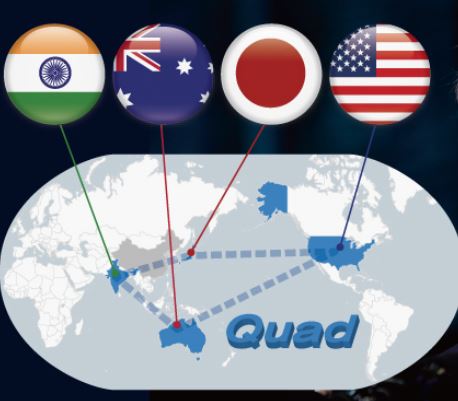
(Source: NEWSIS)
The purpose of the Quad Alliance is to develop a strategy to ensure that important routes in the Indo-Pacific region do not fall into China's sphere of influence, and since 2007, conversations involving the exchange of information, military training, etc., conducted regularly by the 4 countries of the United States, Japan, India, and Australia, have evolved into the Quad Alliance in 2017.
In other words, it is an anti-Chinese military cooperation formed by major countries in the Asia-Pacific.
▪ AUKUS
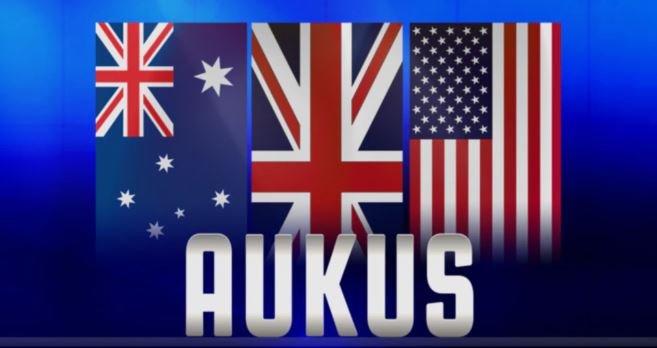
(Source: SeaWaves Magazine)
AUKUS is a three-party military alliance in the Indo-Pacific region formed by Australia, the United Kingdom (UK) and the United States (US) and was launched in 2021 to contain China.
Unlike the Quad, which is a military-security cooperation, it is a "military alliance" similar to NATO, which allows for the deployment of military forces between alliances in case of emergency. With the creation of AUKUS, the United States and the United Kingdom will reportedly deliver nuclear-propelled submarine technology to Australia.
China felt threatened, as did France, whose multi-billion dollar nuclear submarine export to Australia fell apart overnight, and they expressed strong condemnation. It shows the reality of international politics where the interests of the country are at the forefront.
▪ IPEF (Indo-Pacific Economic Framework,)
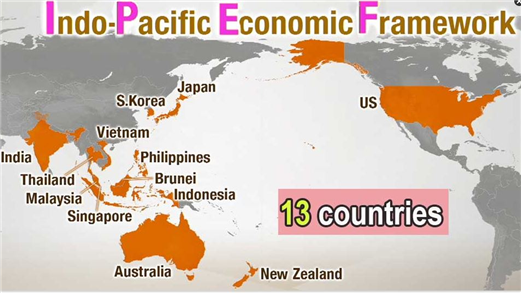
(Source: KATEHON)
IPEF is a U.S.-centric anti-China supply chain front that was launched in May 2022. IPEF is joined by 13 countries: the United States, Japan, South Korea, Australia, Malaysia, Indonesia, and India among others.
The idea is for the United States to use IPEF to tie the Indo-Pacific region together as a huge economic platform. IPEF promotes reshaping of supply chains, clean energy, the digital economy, the establishment of technical standards, and standardized labor, to contain China's growing influence.
―
Anti-American and Anti-West
Countries Siding with Russia and China
―
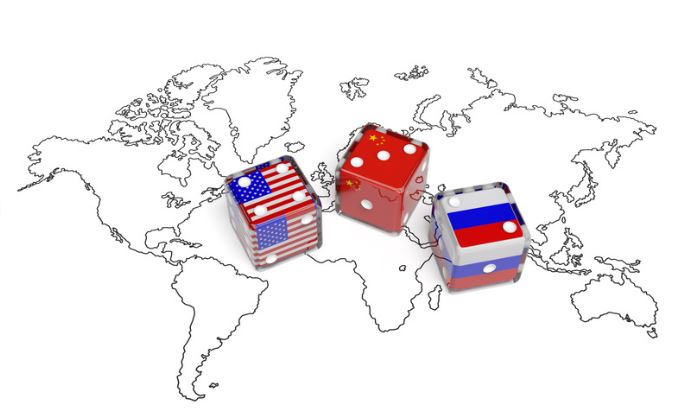
On the other side of the United States, China and Russia are "closely adhering" to each other as their best allies. The common factor of adhesion is anti-American and anti-Western. China is facing an all-out U.S. pressure and containment, and Russia has been under intense Western sanctions centered on the U.S. since the annexation of Crimea in 2014, and they are strengthening their alliance.
China’s point of view is that Russia's invasion of Ukraine is due to NATO's eastward and western pressure on Russia. Faced with all-round defense pressure from Western countries, including the United States, China sees Russia in a "co-operative" position with its own country.
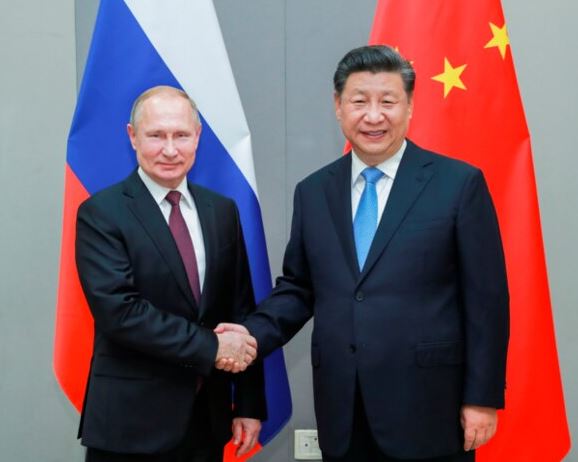
(Source: Josun Ilbo)
Another common factor for Russia and China is that they are both nuclear states and permanent members of the United Nations Security Council. In other words, if the two countries cooperate, they can exert enormous power over the international order. These two countries are working closely together in military, diplomatic, and economic terms and envisioning Sino-Russian multilateral cooperation against the United States.
Recently, President Xi Jinping stated that he would "strengthen communication with important international and regional organizations such as the United Nations, BRICS and the Shanghai Cooperation Organization, and promote cooperation with the emerging market and developing countries to ensure that international order and global governance develop in a more equitable and rational direction,” which means strengthening a new global alliance around China and Russia.
○ BRICS
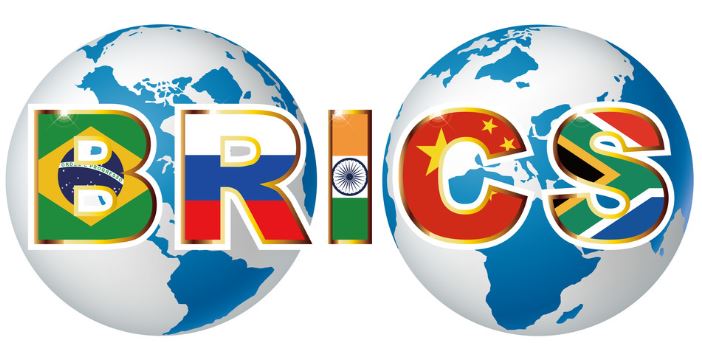
BRICS is named after the acronym of 5 countries: Brazil, Russia, India, China and South Africa. Originally a term used to refer to the 4 countries with large land areas and populations emerging as emerging markets in the 21st century, the BRICS summit was formally held in Russia in 2009 and South Africa joined in 2010. With China and Russia as its axis, it has now become an alliance against the G7.
On 24 June, China announced at the Beijing summit that it was pushing for BRICS Plus, which has further increased its membership to include Bangladesh, Egypt, the United Arab Emirates (UAE) and Uruguay.
In doing so, the BRICS leaders emphasized a multilateral order, pledging to cooperate on issues of infectious diseases, economic recovery, climate change, and world peace and security. It remains to be seen whether the expansion of BRICS will lead to the strengthening of multilateral cooperation or the beginning of another polarization.
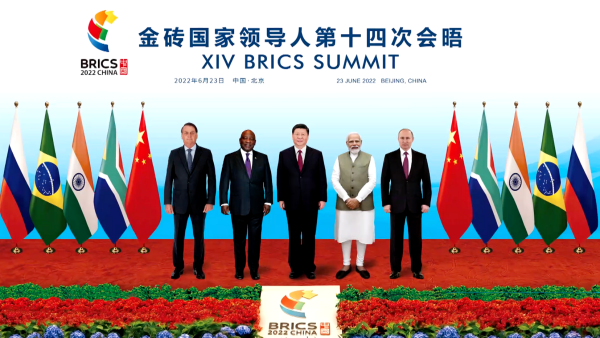
(Source: CGTN)
○ Shanghai Cooperation Organization (SCO)
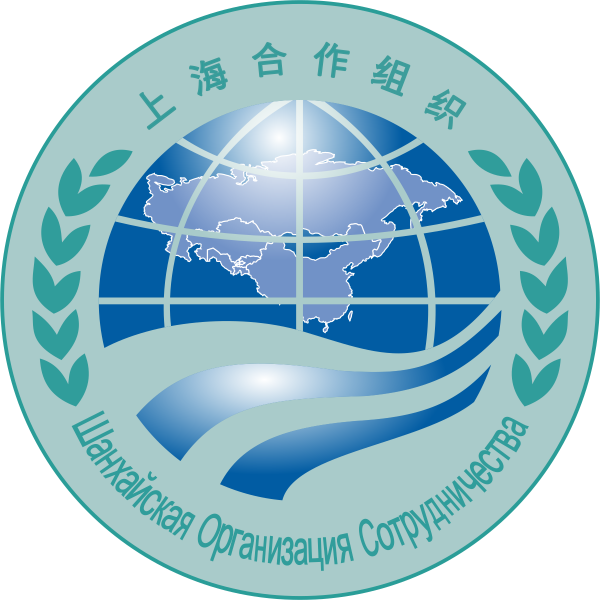
In 2001, China took the initiative to establish the Shanghai Cooperation Organization (SCO), a political, economic and security cooperation organization, and emphasized that it would "jointly respond to various security threats" and "cooperate more closely as one community."
The Shanghai Cooperation Organization (SCO) has 9 member states that includes Russia, Kazakhstan, Uzbekistan, Pakistan and Iran. These member states make up 40% of the world's population and economically account for 25% of the world's GDP.
Over the past 20 years, the Shanghai Cooperation Organization (SCO), led by both China and Russia, has developed into a major multilateral security cooperation organization that counters the U.S.-led international order, advocating territorial inviolability, non-interference in domestic affairs, and a multilateral international order, through the process of military trust building, counterterrorism cooperation, checking on the expansion of NATO, and economic integration.
China is actively using the Shanghai Cooperation Organization (SCO) as an important crutch in the Pacific against the United States. For China, where safety is geopolitically important in the Northern Continental Region and the Pacific Coast, the Shanghai Cooperation Organization (SCO) seeks to ensure stability in the Northern Region.
http://eng.sectsco.org/about_sco/
―
Return to Multilateralism
―
For the past 30 years, the world has enjoyed peace and prosperity under multilateralism. Famine and poverty have been largely eliminated, and the level of health and education has also been greatly improved.
As the new competitive and conflict landscape of the emerging New Cold War is being formed, there is a growing concern that the universal values such as freedom, equality, and democracy that humanity has been striving for are losing its shine.
In particular, the search to respond to global challenges such as the climate crisis and infectious diseases that are directly related to the survival of mankind is on the back burner.
Countries that are not great powers are contemplating which side is the better option for their own interests.
Solidarity within the international community may prove to be the way to ensure freedom and peace for all. That's why a multi-layered approach, rather than choosing one side of the bloc, may be the better option.
The role of the United Nations and the return to multilateralism seem more important than ever to pursue equitable prosperity for everyone in the world.
Written by Sharon Choi
Director of Planning
Sunhak Peace Prize Secretariat

